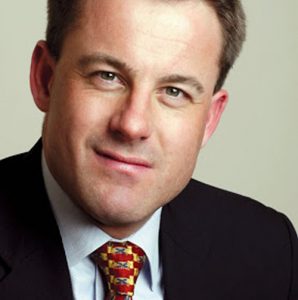Almost 30 years ago I attended a conference in the USA. One of the speakers was a man who made an impression. Don Keogh was at that time the Chief Operating Officer of the Coca-Cola company, based in Atlanta, GA. He had by then a long and successful career with Coca-Cola, one of the world’s most recognised and ‘iconic’ brands. The thing that struck then – and still does today – was his refusal to dwell on or ‘sweat’ the success of the brand he had helped build, of which he had examples a-plenty. Instead he chose the ‘less-travelled’ route to share his wisdom. He spoke of his ten ‘tips’ or insights for losing.
He knew his audience. We were all young managers in our 20’s and 30’s, many from the large FMCG suppliers and large food retailers. But a minority – a significant minority – were from private ‘family’ businesses in Europe and the USA. Businesses similar to the networks of partner bottlers and wholesalers the world over upon which much of the success of the Coca-Cola company has been built. Well-run, well-managed local and regional companies, owned by families all searching for the same thing: successors to continue the run. During his time, he knew many families that had succeeded in succession. But he also knew those families for which succession had not turned out as they might have wished: in short, they (and their successors) lost.
Here are his 10 tips for losing, with successors in mind. You may not thank me, but here they are.
1. Be Content with the Status Quo.
From ‘that’s good enough’ to ‘that’s it then.’ A satisfaction with ‘things as they are.’ As a successor, things are never as they seem. They are always moving. Your constant role is to shape and build tomorrow’s family from todays’. Family as owners, as successors. Agreement and a written document are just the start; your next step is the hardest. It is to re-motivate the family to re-engage with the next group of successors, cultivate leadership and a sense of ownership which will – you hope – carry you (and your family) forward.
Cases of ‘post-agreement’ or ‘post-constitution’ fatigue are ofter cited by those families in attendance at family gatherings and think-ins. When you have gone to all the work to get everyone in the room, reach an agreement (of sorts) why then does the energy – in some cases, not all – wear and dissipate?
2. Be Risk Averse.
Risk, apparently, is everywhere and no more so than in the halls of good governance. As an investor or as a family owner one is prompted to assess and set your ‘risk appetite’ without incurring either a bad case of indigestion or a paralysis of detail. As a successor, what does risk aversion mean? At one level, the belief that things will remain as they are; that ‘events’ will not affect and shape you. Cue a search and engagement of suitable support; a mentor, confidante, trusted advisor or impartial individual you can rely on to tell you the ‘truth’ or at the very least reflect your misconceptions back to you. To have these individuals to hand when the going falters and ‘risk’ appears will stabilise and motivate you.
At a more empowered level, risk aversion as belief that things can (or should) remain as they are. That you are trapped in a role, in a job or in a (family) company which no longer has you in its plans or fits to yours. To move out from under this will incur results you cannot yet see to a magnitude you cannot know. Until you do it.

3. What Would Dad (or Mum) have Done?
In many ways, the core of the matter. Alternatively stated ‘what would Dad have me do?’ For successors, this becomes no more real than the setting and following of one’s own script. The ability to think and to act, for oneself. In simple terms, to identify one’s own career progression (where career is a sequential progression of roles in the same, or varying, field) within, around or outside of the family company.
At a further level, an inability or unwillingness to imagine and lead towards a different vision to that readily accepted or prescribed. Or an unwillingness to elaborate, enlarge or re-define the purpose of the family company you own. Any of these by definition, not what Dad did. A negative side to this is slavishly parrot the assertions, principles and attitudes of one’s seniors to other family members. To break this urge to conformity requires courage and gumption to foster independence of mind and action.
As an owner and as a successor, to find and set one’s own vision and way forward is hard. Revelation to one’s own voice does not present readily, easily or early.
4. Be Inflexible.
As successor’s, the potential to be inflexible is almost endless: of opinion, in assessment of others in the family, of the leadership abilities of cousins or siblings, of the continued traits of ‘the other branch’ or in sustained reaction to perceived sleight or supposed unfairness.
To be loyal to your mistakes as a successor is both possible and easy. Who will air the contrarian view where contrarian ‘facts’ are sparse, and generosity is (at first) perceived as weakness (or heresy)? Inflexibility in successors has a tendency to the collective; to close family, to cousins and thence to an entire generation.
The corrosive effects of inflexibility are not difficult to imagine: poor relationships, a lack of trust and a culture of blame. The only remedy is compromise both with oneself and others. Without this your family – and business – will eventually falter.
5. Rely totally on Research and Reports.
Lies, damn lies and statistics. In the face of the complexity inherent in family business the temptation to search out and rely totally on family business statistics can be soothing. Usually published by service providers, family business reports follow a familiar and consistent (if unremarkable) pattern. Governance and the ‘need’ for structure reflected in numbers showing the apparent low take up of same; next generation involvement as ‘go outside and found a business’ without mention as to who among the family will learn the business you already own; statements as to succession intentions – a myriad of probable forward combinations of the ownership/family/non-family management conundrum. Research for and of the broad aggregate; not particularly insightful for the issues you have to face as a successor.
For insight and a surer base on which to rely, strive to ‘listen to the water’. Go to the well of other families in business; take time to understand their situation and draw similarities or differences with your own. Within this you will begin to craft and design your way forward. You will also find others like you, with a common problem and a need to manage it.
A formal constitution is an agreement by your family at a particular moment in time. It is in effect your ‘report’ on where you are as a family, how you will work together and where you want to get to. It is a mistake to consider this to be a static document. To be really effective, you must allocate time to review what you have agreed, in the light of current facts or changes in circumstance. If you do not have the time (or the stomach) to change the document in its entirety, chunk it. You have to start somewhere or time will do it for you.
6. Concentrate on your Competitor instead of your Customer.
 For successors’ this may be re-phrased a little differently. To lose, concentrate on the negative instead of the positive. An example can be found in the attitude of inactive family members to perceived underperformance or slipping standards within the family business. It is simper and easier to identify what managers are doing wrong, rather than to take the time to identify and understand what it is they are doing right. Ditto for assessment of your family business competitors. No-one wants to hear where their errors are. Take time to identify what your competitors are doing well and bring this observation back to your family business as a positive contribution; you will be surprised at the reaction.
For successors’ this may be re-phrased a little differently. To lose, concentrate on the negative instead of the positive. An example can be found in the attitude of inactive family members to perceived underperformance or slipping standards within the family business. It is simper and easier to identify what managers are doing wrong, rather than to take the time to identify and understand what it is they are doing right. Ditto for assessment of your family business competitors. No-one wants to hear where their errors are. Take time to identify what your competitors are doing well and bring this observation back to your family business as a positive contribution; you will be surprised at the reaction.
This attitude also fits for evaluation and assessment of ones’ own relatives. The other successors. Generosity is usually free, will contribute a great deal to the health and energy of the family as a whole and is usually reciprocated. If you want to lose, leave it at the door.
7. Administrative Concerns take precedence over everything else.
For successors, this may be re-phrased as ‘administrative concerns are someone else’s problem’. To be effective, family ownership requires participation. Activities to foster and energise an owning family vary from participating on the board, to organising and attending events designed to get you and your siblings or cousins talking. While some of these may appear mundane and (to those successors who are knowledgeable on business and ownership) somewhat elementary, they all serve a purpose. The commercial and the technical are all very well; but it is the social ‘glue’ and a willingness to become involved at any level which is the most telling. These events are opportunities to get involved, roll-up your sleeves and contribute. Someone has to wash the dishes.
Events like these are in effect an opportunity to observe those successors who are willing to ‘get involved’ and for whom washing dishes, organising and motivating others are not elements beneath them but genuine activities which have a full and lasting value. As a successor, being prepared to do this is a sure sign of maturity, possibility and resolve. The minute you believe that such work is the domain of someone else or in extremis, that attendance at successor events is beneath you then you are on a path to losing.
8. Put Yourself first: think of transactions instead of people… especially your family.
For successors, to lose think solely of ‘company’ instead of ‘family’. It is a relatively easy thing to fix and retain your focus on things pertaining to the company; there is never any shortage of issues to become preoccupied with nor of constructive advice on how to manage. However, such focus and energy are usually at a cost to family. It would seem to be axiomatic that the more senior the successor, the more time he/she will need to allocate to ‘family’ and those family issues related to ownership.
Successor preparation is weighted towards the technical and the commercial; that for the effective management of family, learning or the handholding required for the development of successor careers and well-adjusted owners is usually overlooked, under-resourced or neglected in favour of the ‘company’ stuff.
9. Look to someone else (seniors, consultants, non-family) to do your thinking for you…in lieu of thinking for yourself.
In simple terms; challenge yourself to do your own thinking. This is the essence of family business leadership. Based on the surety that if you do not design your own future, someone else will do it for you. Never truer than in a family.
There is a time and timing when you take on the task to re-vision your families’ business, the purpose of the family and the relationship between the two.
The principles of ownership rest with you as successors, not with those hired in or non-executives. As a test, look to re-evaluate those principles which have governed you to-date. If the chatter amongst co-successors is weighed to that which is not working, causing frustration or omitted, then your principles as they stand probably don’t answer. Time to re-think, re-talk and re-emerge.
10. Rationalise the slowing down of growth … in numbers involved or committed to your family business. 
Competing commitments, careers, distance, age and stage, competency, business literacy, scale of the company – et al. all presented as reasons for a lack of family involvement and by inference commitment to the company you own.
This is a convincing, well-articulated and forceful argument but it is based on a fallacy. That the determinants of successful and committed family involvement and commitment are all exogenous. That is external to and outside of the whit or control of (or by) the family.
Involvement and commitment of successors is determined endogenously; internal to the family and internal to ownership. The responsibility of successors is to cultivate other successors; this is the only way one may sustain – if you want to – continuity of family ownership. Go talk to your cousins.
 Biography
Biography
Philip is a leadership coach and mentor for family business successors. He previously held positions as manager, Head of the Family Council and non-executive Family Director within his family business, over a 25 year period. He founded and ran FBN Ireland (www.fbnireland.ie), a network to support families-in-business who desire to transition effectively from one generation to the next. He is currently writing a book on successor talent development within business owning families.
Philip can add value and support successors in the following ways:
- As Coach or Mentor;
- Advisor on performance and talent development;
- Facilitator for learning of family business management, ownership and leadership development.
Philip writes a fortnightly blog for successors to families-in-business. For this and additional information please see his website www.philipmackeown.ie or his profile on LinkedIn https://www.linkedin.com/in/philipmackeown/ He can be contacted on email at philip@philipmackeown.ie .




